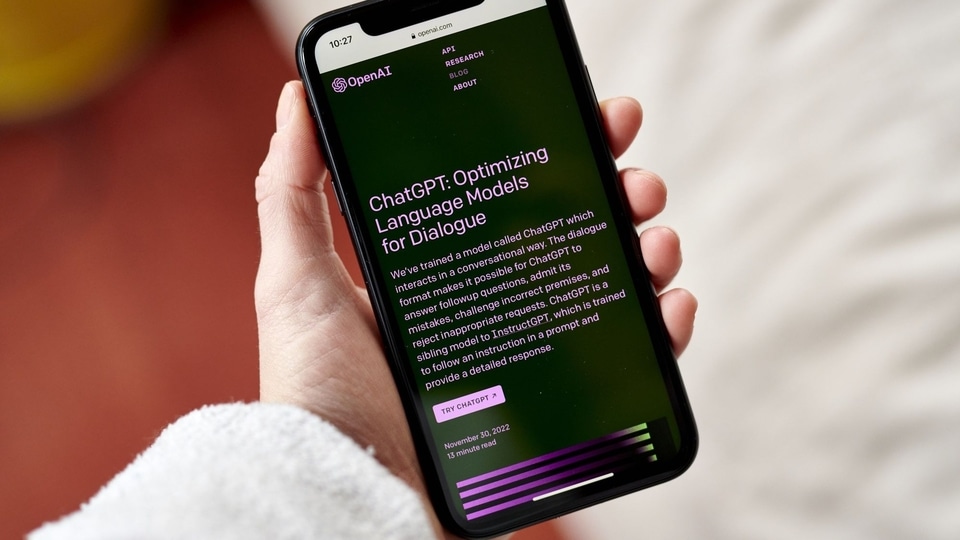How To make use Of Deepseek Ai News To Desire
페이지 정보

본문
 To counter this, a critique of hyperreality should ideally be paired with methods to break its hold and reclaim a sense of company. It could actually assist you in refined ways as you prepare a place or argument you search to develop and defend, whether it’s in a formal debate or an informal conversation. If nothing else, AI can always be a software to refine one’s rhetorical skills. Can drawing attention to this studying of contemporary culture be helpful in a society that has turn into weakened by inside fractures and even fragmentation? For these open to critique: Drawing consideration to hyperreality will be profoundly helpful, particularly in an period of increasing disillusionment with neoliberalism, inequality, and the erosion of trust in establishments. For many who really feel powerless: There’s a threat that highlighting hyperreality results in a way of resignation moderately than empowerment-if every part is manufactured and manipulated, then what’s the purpose of resistance? What might those who really feel threatened by it point to as credible weaknesses? I’m a knowledge lover who enjoys finding hidden patterns and turning them into useful insights.
To counter this, a critique of hyperreality should ideally be paired with methods to break its hold and reclaim a sense of company. It could actually assist you in refined ways as you prepare a place or argument you search to develop and defend, whether it’s in a formal debate or an informal conversation. If nothing else, AI can always be a software to refine one’s rhetorical skills. Can drawing attention to this studying of contemporary culture be helpful in a society that has turn into weakened by inside fractures and even fragmentation? For these open to critique: Drawing consideration to hyperreality will be profoundly helpful, particularly in an period of increasing disillusionment with neoliberalism, inequality, and the erosion of trust in establishments. For many who really feel powerless: There’s a threat that highlighting hyperreality results in a way of resignation moderately than empowerment-if every part is manufactured and manipulated, then what’s the purpose of resistance? What might those who really feel threatened by it point to as credible weaknesses? I’m a knowledge lover who enjoys finding hidden patterns and turning them into useful insights.
 It builds on the insights of thinkers like Jean Baudrillard (who coined hyperreality), Noam Chomsky and Edward Herman (manufacturing consent), and Guy Debord (the spectacle). ‘People like hyperreality.’ If consumers willingly purchase into the system-whether or not by leisure, social media, or aspirational culture-does that imply they prefer it? I've claimed, generally in a joking tone, that Donald Trump and Elon Musk are probably the most achieved purveyors of hyperreality, but what they achieve is merely the surface of something more complex, created and maintained by generations of elites in politics, the media, industry, promoting, schooling and the arts who have willingly been drawn into its commanding logic and inculcated it in the overall inhabitants. For those who benefit from the system: Elites in media, politics, and business are unlikely to welcome such an evaluation as a result of it exposes the logic that underpins their legitimacy. Their logic is constructed on the axiom that the principal issue of motivation in social interplay is anything deemed profitable to people. The position of individual agency: When you emphasize systemic forces, some might argue that individuals are not as powerless as you recommend. Paradoxically, they've turned this shared perception in a system of individuals competing with each other into what the majority perceives as a common cause, the enemy being any form of collectivism, akin to socialism and communism.
It builds on the insights of thinkers like Jean Baudrillard (who coined hyperreality), Noam Chomsky and Edward Herman (manufacturing consent), and Guy Debord (the spectacle). ‘People like hyperreality.’ If consumers willingly purchase into the system-whether or not by leisure, social media, or aspirational culture-does that imply they prefer it? I've claimed, generally in a joking tone, that Donald Trump and Elon Musk are probably the most achieved purveyors of hyperreality, but what they achieve is merely the surface of something more complex, created and maintained by generations of elites in politics, the media, industry, promoting, schooling and the arts who have willingly been drawn into its commanding logic and inculcated it in the overall inhabitants. For those who benefit from the system: Elites in media, politics, and business are unlikely to welcome such an evaluation as a result of it exposes the logic that underpins their legitimacy. Their logic is constructed on the axiom that the principal issue of motivation in social interplay is anything deemed profitable to people. The position of individual agency: When you emphasize systemic forces, some might argue that individuals are not as powerless as you recommend. Paradoxically, they've turned this shared perception in a system of individuals competing with each other into what the majority perceives as a common cause, the enemy being any form of collectivism, akin to socialism and communism.
Just as within the case of an expert athlete, the person being coached is the performer. "My reading of contemporary history has led me to write down quite a few columns in a respectable journal - Fair Observer - making the case that the domination of US culture over the previous century and particularly since the end of WWII has imposed a veneer of hyperreality designed to hide and change reality, in the best way folks understand the world. It has led to a complicated system of mind shaping, sometimes called manufacturing consent, but it surely goes nicely beyond the purely political results. What severe objections can trustworthy observers as nicely as the involved elite raise in opposition to it? This contains requesting what the objections would possibly appear to be. Now, it is not essentially that they do not like Vite, it's that they want to provide everybody a fair shake when talking about that deprecation. How do we would like other individuals to be treated by an algorithm? People do resist, create counter-narratives, and type alternative communities. Instead, I'd frame it as a handy convergence of interests amongst those who exercise any type of energy that makes it obtain settlement on the necessity to privilege the concept of the autonomous particular person and neglect the cultural components that foster a way of collective interest.
China's clear interest in leading the area's research and growth, open up the doors to immense privateness and nationwide security concerns. This simple technique should interest political speech writers but in addition sales personnel. Is there a clear distinction between hyperreality and simple shopper choice? Was it their shared commitment to hyperreality that sealed the union? Is hyperreality too summary? How can we distinguish ‘real’ reality from hyperreality in sensible terms? Over the past decade in a number of columns I’ve recurrently alluded to my belief in the validity of the idea formulated by French philosopher and sociologist Jean Baudrillard that our technologically developed civilization has fabricated a layer of notion he calls hyperreality. Why it matters: This research is another instance of AI’s increasing potential to interpret our brainwaves - potentially unlocking an infinite supply of latest learnings, remedies, and know-how. On the time, they lived in two separate hyperreal worlds: politics and know-how. But in the realm of politics or sales, the same strategy can prove productive even for the cynical purpose of getting votes or selling an inferior product. The fundamental approach consists of getting learners to launch a dialogue with their friendly chatbot by formulating, even in an inchoate from, an concept they care about or imagine must be defended.
If you loved this information and you want to receive more info regarding DeepSeek site generously visit the internet site.
- 이전글How A Lot Nicotine Is In a Single Cigarette? 25.02.06
- 다음글P102- يُحفظ بعيدًا عن متناول الأطفال 25.02.06
댓글목록
등록된 댓글이 없습니다.

